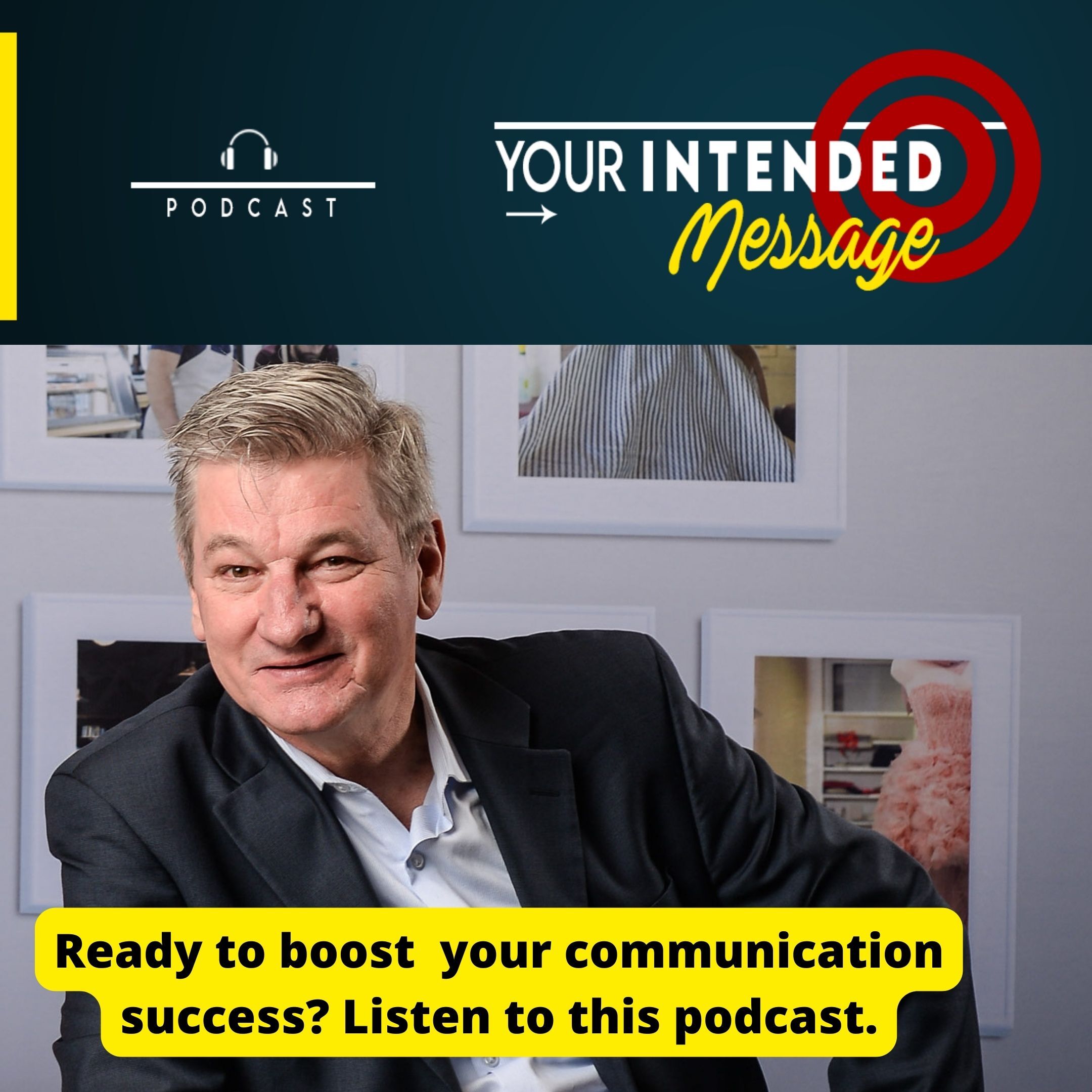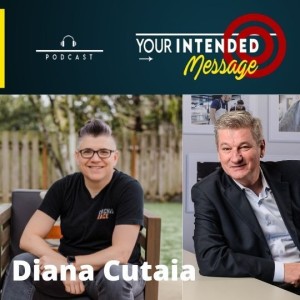
15.2K
Downloads
263
Episodes
Better communication skills will advance your career and business. Are you ready to enhance your understanding and results from better communication? Listen to learn how to deliver Your Intended Message. Are you willing to cross-examine communication from various perspectives? Would you like to deliver your intended message more effectively? Listen to Your Intended Message to gain a powerful advantage in your ability to convey your message to your audience, team, clients or marketplace. Learn from the mistakes and success of communication experts from around the world from different scenarios. Imagine what that means to you when you improve the success of your next conversation, presentation or message.
Episodes

Thursday Feb 10, 2022
Lessons from Sports to Apply to Workplace Teams: Diana Cutaia
Thursday Feb 10, 2022
Thursday Feb 10, 2022
What can we learn about communication and team building from playing and coaching sports teams?
Don't throw the ball the way you want to. Throw the ball the way they can catch it. The same rule applies to communication.
Episode 81
Former basketball coach, Diana Cutaia, offers inspiration and practical advice on how to build stronger teams.
Concepts and ideas that we explore:
- How to reframe and address a behavior problem
- Reminder about the lure of anger when communicating
- Focus on process not the outcome, because process determines results
- Celebrate other's results
- Beware of the weakest link and the danger of tolerance
- Why might the team resist change, again?
- The role of the coach in supporting the team It's more than a pep talk
Diana Cutaia is founder of Coaching Peace Consulting. They help organizations boost workplace efficiency by building stronger teams and nurturing a healthy environment.
Coaching Peace provides virtual programs and multiday retreats.
Diana Cutaia is based in Oregon, USA.
Learn more at CoachingPeace.com
Excerpts from this conversation with Diana Cutaia:
03:07
Yeah, I think you hit on a good point there. George, I think one of the things to begin to think about when we think about behaviour, whether that's behaviour of a child, or adults.
Either way is they are trying to communicate with us and let us know, and there is a reaction. I mean, we always say, you can't change someone else, but you can change the way you interact with them.
And that, thus may change their behaviour. I think it's really important for us to understand if I'm a manager, and I walk into a meeting with one of my employees, and we're doing a performance evaluation, and they come in and they're wildly defensive, before I say anything.
I could get angry as a manager and say, hey, you know, no, we're not gonna, if you're gonna come in here and be defensive.
Or I could try to understand what feels threatening for them in this space, that they need to be defensive. And how have I contributed to that? And how might I approach this differently now that I have some understanding about how they're perceiving what we are doing?
And I think that's really important for us to kind of recognise and understand is that, you know, that connection and that communication becomes really important.
-----
10:09
Lessons from sports teams?
Oh, gosh, there's so many, I think, the first of which is team, right, and how we kind of operate as a team.
And I think one thing that we learned in sport that I wish we could really translate, there's some businesses that do this really well, some companies that we've worked with, that we have been so impressed with how they do this is oftentimes we think about empathy, only in the context of sadness or tragedy, like when something bad happens, how are we empathising with someone?
How are we being in that space with them? And I think one of the things that we learn in sport is empathy, is also about connecting with someone else's joy.
So when you know your teammate hits a last second shot, and scores that basket, whether you win or lose, you think this is amazing, this is the best thing that ever happened. And there's this unbelievable amount of joy over their success.
When I coached, I would always say, if the other team makes a great basket, there are times I'll cheer him on, as a basketball coac., I'll cheer him on if you did something.
I'm not going to not recognise greatness and good things that happen. I'm going to share you have amazing joy.
How do we do that? In businesses? How do we celebrate each other's successes?
How do we cheer folks on when they need it, and also acknowledge them in those moments and not make it where it's adversarial or competitive in the way that we are using competition as a comparison, not a collaboration?
-----
Your Intended Message is the podcast about how you can boost your career and business success by honing your communication skills. We’ll examine the aspects of how we communicate one-to-one, one to few and one to many – plus that important conversation, one to self.
In these interviews we will explore presentation skills, public speaking, conversation, persuasion, negotiation, sales conversations, marketing, team meetings, social media, branding, self talk and more.
Your host is George Torok
George is a specialist in communication skills. Especially presentation. He’s fascinated by the links between communication and influencing behaviours. He delivers training and coaching programs to help leaders and promising professionals deliver the intended message for greater success.
Connect with George
www.SpeechCoachforExecutives.com
https://www.linkedin.com/in/georgetorokpresentations/
https://www.youtube.com/user/presentationskills


No comments yet. Be the first to say something!